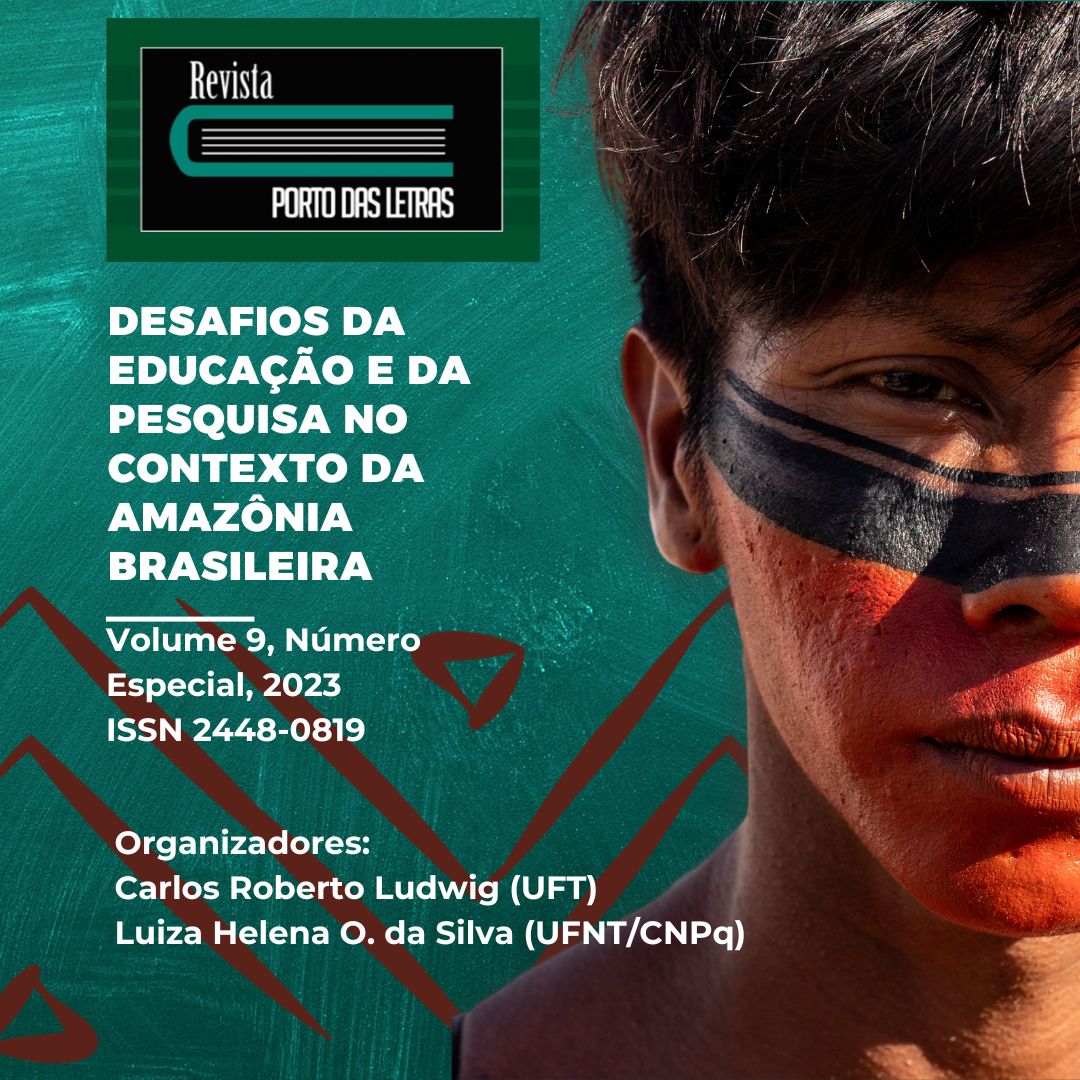Letramento Científico nas habilidades do Campo de ‘Práticas de estudo e pesquisa’ da BNCC:
concepções sociocientíficas
Resumo
O Letramento Científico, enquanto prática social, enfatiza o caráter e a utilidade da Educação Científica tendo por finalidade formar cidadãos ativos, receptivos e socialmente responsáveis frente a situações influenciadas pelas ciências. Para aprofundar as pesquisas sobre este campo de estudo, este trabalho tem como objetivo verificar o entendimento da concepção de educação científica nas habilidades do campo de atuação ‘Práticas de estudo e pesquisa’ das séries finais do Ensino Fundamental da Base Nacional Comum Curricular. Como aporte teórico, a pesquisa está situada no campo da Linguística Aplicada Indisciplinar (MOITA-LOPES, 2006), em diálogo com os Novos Estudos do Letramento (KLEIMAN, 2004) e o Letramento Científico (HURD, 1998; Ratcliffe, 1997; (DEBOER, 2000; SANTOS,2006; SANTOS, 2007; HOLBROOK; RANNIKMAE, 2009, silva, 2020) Quanto aos aspectos metodológicos, a pesquisa é do tipo qualitativa de procedimento descritivo documental, por Unidades de Registro (LÜDKE; ANDRÉ, 1986). As categorias Natureza da Ciência, Linguagem Científica e Aspectos Sociocientíficos (Relevância, Motivação, Comunicação e Argumentação, Análise e Compreensão) são mobilizadas no tratamento dos dados (RATCLIFFE, 1997; SANTOS, 2007). Os resultados obtidos a partir das análises demonstram que as habilidades do campo de ‘Práticas de estudo e pesquisa’ estão alinhadas ao Letramento Científico, entretanto para que se consolide o ensino dos conceitos sociocientíficos notou-se a necessidade de práticas interdisciplinares entre os componentes curriculares de Ciências da Natureza e a área de Língua Portuguesa, já que a categoria predominante encontrada é a referente à Linguagem Científica com a presença de alguns Aspectos Sociocientíficos em cada habilidade.
Palavras-chave: Educação Científica; Letramento Científico; BNCC; Categorias sociocientíficas de análise.
Referências
BRASIL. Parâmetros Curriculares Nacionais. Brasília, DF: MEC/SEF, 1998.
BRASIL. Parâmetros Curriculares Nacionais para o Ensino Médio. Brasília, DF: MEC/SEF, 2000.
BRASIL. Base Nacional Comum Curricular (BNCC). Ensino Médio. Brasília: Mec, 2018.
BAKHTIN, M. Marxismo e filosofia da linguagem. São Paulo: Hucitec, 1992.
CHASSOT, A. Alfabetização científica: uma possibilidade para a inclusão social. Revista Brasileira de Educação, Rio de Janeiro, n. 22, p. 89 - 100, jan. - abr., 2003.
DEBOER, G. E. Scientific literacy: another look at its historical and contemporary meanings and its relationship to science education reform. Journal of research in science teaching, Malden (USA), v. 37, n°. 6, p. 582 – 601, 2000.
FUZA, . F.; MIRANDA, F. D. S. S. Tecnologias digitais, letramentos e gêneros discursivos nas diferentes áreas da BNCC: reflexos nos anos finais do ensino fundamental e na formação de professores. Revista Brasileira de Educação, v. 25, p. e250009, 2020.
HOLBROOK, J.; RANNIKMAE, M. The Meaning of Scientific Literacy. International Journal of Environmental & Science Education, Bolu, v. 4, n°. 3, pp. 275 – 288, 2009.
HURD, Paul Dehart. Scientific Literacy: New Minds for a Changing World. John Wiley & Sons, Malden (USA), Inc. Sci ed. 82, pp. 407–416, 1998.
KLEIMAN, . B. Introdução: O que é letramento? Modelos de letramento e as práticas de alfabetização na escola. In: KLEIMAN, ngela. B (org.). Os significados do letramento. São Paulo: Mercado de Letras, 2004.
LE GOFF, J. História e Memória. Trad. Bernardo Leitão et al. Campinas, SP: Editora da UNICAMP, 1990, p. 535-552.
LÜDKE, M.; ANDRÉ, M. E. D. A. Pesquisa em educação: abordagens qualitativas.
São Paulo: EPU, 1986.
MILLAR, R. Towards a science curriculum for public understanding. School Science Review, v. 77, n. 280, p. 7-18, 1996.
MOITA LOPES, L. P. da. Uma linguística aplicada mestiça e ideológica: interrogando o campo como linguista aplicado. In.: MOITA LOPES, L. P. da (org). Por uma linguística aplicada indisciplinar. São Paulo: Parábola Editorial, 2006. p. 13-43.
NORRIS, S. P.; PHILLIPS, L. M. How literacy in its fundamental sense is central to scientific literacy. Science Education, v. 87, n. 2, p. 224-240, 2003.
PEREIRA, R. C.; ROCA, P. Linguística Aplicada: um caminho com diferentes acessos. São Paulo: Contexto, 2011.
RATCLIFFE, M. Pupil decision‐making about socio‐scientific issues within the science curriculum. International Journal of Science Education, v. 19, n. 2, p. 167-182, 1997.
SANTOS, W. L. P. dos. Educação científica na perspectiva de letramento como prática social: funções, princípios e desafios. Química Nova, Brasília, v. 29, p. 611-620, 2006.
SANTOS, W. L. P. dos. Letramento em Química, educação planetária e inclusão social. Revista Brasileira de Educação, Rio de Janeiro, v. 12 n. 36, p. 474 - 550, 2007.
SHAMOS, M. H. The myth of scientific literacy. New Brunswick: Rutgers University Press, 1995.
SILVA, W. R. Educação científica como abordagem pedagógica e investigativa de resistência. Trab. Ling. Aplic., Campinas, nº (59.3), p. 2278-2308, set./dez. 2020.
SOARES, M. Letramento: um tema em três gêneros. Belo Horizonte: Autêntica, 1998
Downloads
Publicado
Como Citar
Edição
Seção
Licença
Os autores concordam com os termos da Declaração de Direito Autoral, que se aplicará a esta submissão caso seja publicada nesta revista (comentários ao editor podem ser incluídos a seguir).

